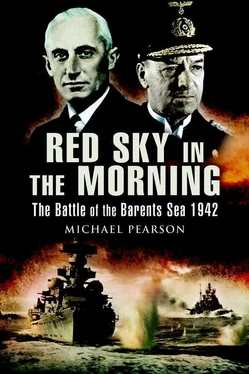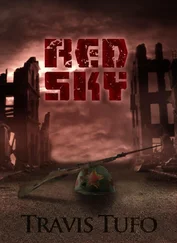—♦—
Following Germany’s invasion of Norway and Denmark in April 1940, events in western Europe developed at speed. On 10 May Winston Churchill replaced Neville Chamberlain as Prime Minister of Great Britain, while on the same day German troops invaded Belgium and the Netherlands. The Blitzkrieg swept on through France, forcing the evacuation of the British Expeditionary Force and a substantial number of its French allies from Dunkirk.
The German – Italian Axis now controlled all of western Europe with the exception of an area of southern France controlled by the Vichy regime (in effect a German puppet government) and Spain, neutral but pro-Fascist. A further expansion of the Axis powers was announced on 27 September when the Tripartite Pact between Germany, Italy, and Japan was made public.
Britain’s European allies had been knocked out of the fight with devastating rapidity, and a substantial portion of the land forces available to her in the European theatre had only just escaped annihilation. Despite these hammer blows the British government and people, both strengthened by the unflinching resolve and stirring rhetoric of Prime Minister Churchill, determined that there would be no deals and no capitulation. Britain would remain without an ally with armies in the field against Germany until June 1941.
—♦—
During the summer of 1940, the Battle of Britain and the RAF’s defeat of the Luftwaffe brought Hitler’s attention back to his principal obsession – Russia. The German navy would step up attacks on Britain’s supply routes by U-boat and surface raiders, while the Luftwaffe switched from a direct confrontation with the RAF to bombing Britain’s civilian population in her cities. In this way, it was hoped, Britain could be kept at arm’s length until public morale cracked and she would be forced to sue for peace on German terms. In the meantime, the great mass of Germany’s formidable military power would be unleashed on Russia.
At 1.35 a.m. on Sunday, 22 June 1941 Adolf Hitler launched Operation Barbarossa , the invasion of Russia. Having noted the difficulties which the Red Army experienced suppressing the troublesome Finns, Hitler’s high command had no doubts as to the outcome; nevertheless preparations had been meticulous and the sheer scale of the German invasion was awesome. From the Baltic Sea in the north to the Black Sea in the south stood some 3,000,000 men, 3200 tanks, and 7500 guns. To the rear, stretching the full length of the front in a band 100 miles (161 km) wide, were the ammunition dumps, stores, fuel, half a million lorries, 600,000 horses, and all the accoutrements and paraphernalia necessary to support this vast array. Covering the invasion would be 775 bombers, 310 dive bombers, 830 single-engine fighters, 90 twin-engine fighters, 710 reconnaissance aircraft and, for operations in the Baltic and Black Sea, 55 seaplanes. [3] 3 Pitt, Barrie & Francis (1998) The Chronological Atlas of W.W.II , Bookmart Edition.
Behind the invading armies came the SS Einsatzgruppen , the death squads, the butchers and executioners whose mission it was to obliterate any vestige of Bolshevism, and reduce the surviving Slav population to abject slavery. The Nazis’ unholy war had begun.
Opposing this terrifying force the Red Army was, on paper, impressive; but there were serious, almost fatal, cracks in the edifice presented to the world. In theory at least, the Red Army had some 2,000,000 men, 20,000 tanks, and 12,000 aircraft [4] 4 Ibid.
available in its western provinces to pit against the invaders. Many units, however, were substantially under strength, and there were worse problems. In the mid-1930s the Red Army could justly claim to be one of the finest fighting forces in the world. Noting this power, Joseph Stalin, with the obsessive paranoia of the absolute dictator, perceived threats and plots against him, and in 1937 unleashed the secret police, the NKVD, and as vicious as anything the Nazis had to offer, against the officer corps of the Red Army. Between 1937 and 1938 three of the five marshals of the USSR, eleven deputy commissars of defence, thirteen of fifteen army commanders, all the military district commanders and 35,000 officers of lower rank were executed, imprisoned, ‘disappeared’ or, for the fortunate few, merely dismissed. Only those officers who displayed total unquestioning obedience to Stalin remained. The war with Finland underlined the crippling effects of such blind reliance on ‘higher authority’ as officers at all levels made no attempt at individual enterprise or initiative, and instead simply waited for orders from above. Finally, sheer weight of numbers told against the Finns, but the Russians would not have that ace to play against the advancing hordes of the ruthlessly efficient, state-of-the-art German military machine.
To compound the problems, despite warnings from Britain and the United States, Stalin was convinced that Hitler would not break the non-aggression pact so soon after its inception. In order to reduce the possibility of border incidents and heightened tensions in the area, many of the Soviet ‘advance’ units were withdrawn miles behind their forward positions, in many instances scattered over wide areas with at best antiquated communications systems.
When the storm broke the Russian ‘front’ was swept away, and despite pockets of resistance German mechanised units along the whole line of advance sped deep into western Russia.
—♦—
As the German invasion erupted into his country, Stalin bombarded the British government with urgent pleas for help for his hard-pressed armies. Although in its early stages the war in Russia did not appear destined to last long – so rapidly did the invaders gain ground – Churchill was painfully aware that Russia was the only ally Britain had with armies in the field against the mutual enemy, and it was vital to keep her in the fight. Despite severe shortages of supplies, equipment and ships of all kinds, especially escorts, the Prime Minister undertook to have regular convoys sent from Britain to the Russian Arctic ports of Murmansk and Archangel.
Relations between the British and Soviet governments were never going to be easy given the preceding years of mutual distrust, especially since it was widely known that Prime Minister Churchill was unshakeably anti-Communist, and while the revolution in Russia was under way had, as a senior government minister, publicly and unequivocally supported the White Russian (anti-Communist) forces. Given these feelings, when asked how he proposed to respond to the German invasion of Russia, Churchill firmly nailed his colours to the mast with his famous remark: ‘If Hitler invaded Hell, I would at least give the Devil a favourable mention in the House of Commons’. [5] 5 Pelling, Henry (1999) Winston Churchill , Wordsworth Editions.
Despite the best of intentions things got off to a shaky start. Prior to the German invasion, British intelligence, having broken the Wehrmacht Enigma code, became aware of the build-up of forces taking place on the Russian border. Churchill was keen to develop a ‘one-toone’ relationship with Stalin and sent a personal warning of the German plans to the Soviet leader, with instructions to the British ambassador to Moscow, Sir Stafford Cripps, that he should hand it personally to Stalin. The Ambassador argued the point, believing that it should be sent ‘through channels’ via the appropriate Soviet government department. As a result of much to-ing and fro-ing the message did not reach Stalin for weeks, by which time much of its impact had been lost. [6] 6 PRO. PREM 3/395.
Читать дальше












